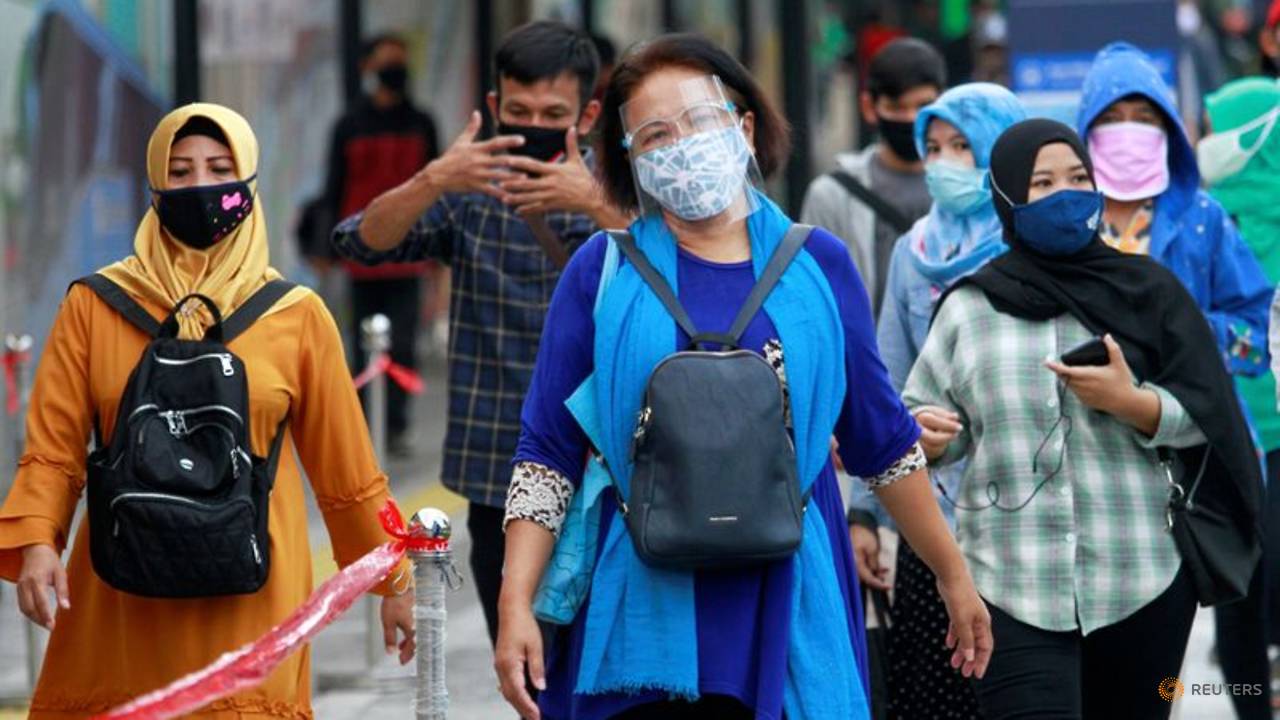JAKARTA: Indonesia's capital plans to double its COVID-19 testing capacity in the near future, its governor told Reuters on Thursday (Sep 17), as it fights surging infections that saw restrictions re-imposed to slow the spread and help hospitals to cope.
Jakarta alone has seen more than 1,000 new daily cases on average this month, more than double the average in the first half of August, with the tide of infections piling pressure on its under-resourced health sector.
Advertisement
Advertisement
Governor Anies Baswedan said in an interview that the city of 10 million was conducting about 50,000 daily coronavirus tests and hopes to "at least reach double from where we are today".
READ: 5 Bali restaurants popular with tourists and how they are faring during COVID-19
According to the World Health Organization, Jakarta's weekly testing rate of five-and-a-half to six people per 1,000 population in the past three weeks was five times the WHO's minimum benchmark.
Baswedan said the rapid case rise left him no choice but to bring back social restrictions that he eased in June, with limits on commerce, transport and places of worship re-imposed.
Advertisement
Advertisement
Local officials carry a mock coffin to promote awareness of COVID-19 in Jakarta, Sep 15, 2020. (Photo: AFP/Bay Ismoyo)
"We had never experienced this kind of jump," Baswedan said. "That's why … we decided to pull a brake."
He said 13 of Jakarta's 67 hospitals have been designated as COVID-19 treatment centres.
READ: COVID-19 cluster in Indonesia's health ministry prompts calls for government institutions to set example of strict protocols
Asked if more would be dedicated to coronavirus cases, he said, "I don't hope so."
"No one wants to see that," he added.
Indonesia reported 3,635 new infections and 122 deaths on Thursday, taking total cases to 232,628 and fatalities to 9,222, Southeast Asia's most deaths.
This aerial picture shows lighter than usual traffic near the landmark Hotel Indonesia roundabout in Jakarta on Sep 14, 2020. (Photo: AFP/Adek Berry)
Unlike many Asian capitals, Jakarta did not impose a lockdown and opted for a more calibrated approach, which some critics say was too lax.
Indonesia's finance minRead More – Source
JAKARTA: Indonesia's capital plans to double its COVID-19 testing capacity in the near future, its governor told Reuters on Thursday (Sep 17), as it fights surging infections that saw restrictions re-imposed to slow the spread and help hospitals to cope.
Jakarta alone has seen more than 1,000 new daily cases on average this month, more than double the average in the first half of August, with the tide of infections piling pressure on its under-resourced health sector.
Advertisement
Advertisement
Governor Anies Baswedan said in an interview that the city of 10 million was conducting about 50,000 daily coronavirus tests and hopes to "at least reach double from where we are today".
READ: 5 Bali restaurants popular with tourists and how they are faring during COVID-19
According to the World Health Organization, Jakarta's weekly testing rate of five-and-a-half to six people per 1,000 population in the past three weeks was five times the WHO's minimum benchmark.
Baswedan said the rapid case rise left him no choice but to bring back social restrictions that he eased in June, with limits on commerce, transport and places of worship re-imposed.
Advertisement
Advertisement
Local officials carry a mock coffin to promote awareness of COVID-19 in Jakarta, Sep 15, 2020. (Photo: AFP/Bay Ismoyo)
"We had never experienced this kind of jump," Baswedan said. "That's why … we decided to pull a brake."
He said 13 of Jakarta's 67 hospitals have been designated as COVID-19 treatment centres.
READ: COVID-19 cluster in Indonesia's health ministry prompts calls for government institutions to set example of strict protocols
Asked if more would be dedicated to coronavirus cases, he said, "I don't hope so."
"No one wants to see that," he added.
Indonesia reported 3,635 new infections and 122 deaths on Thursday, taking total cases to 232,628 and fatalities to 9,222, Southeast Asia's most deaths.
This aerial picture shows lighter than usual traffic near the landmark Hotel Indonesia roundabout in Jakarta on Sep 14, 2020. (Photo: AFP/Adek Berry)
Unlike many Asian capitals, Jakarta did not impose a lockdown and opted for a more calibrated approach, which some critics say was too lax.
Indonesia's finance minRead More – Source












